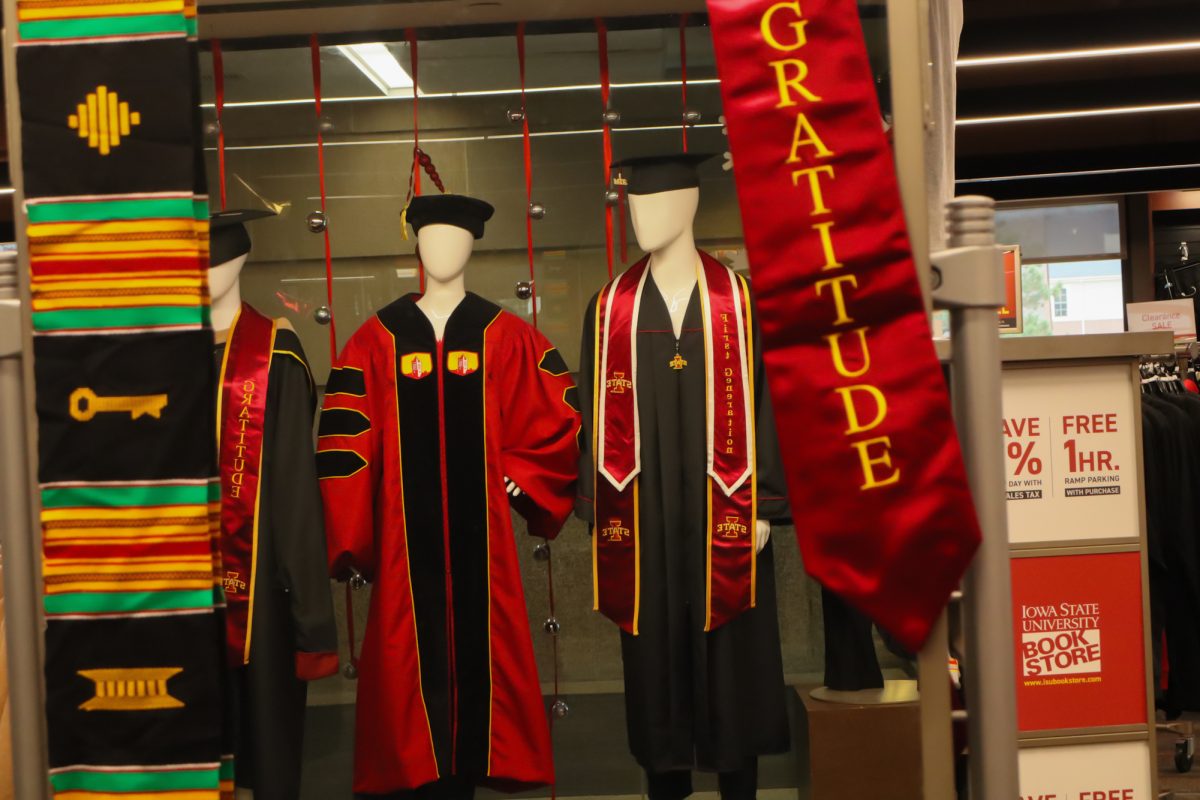‘Now what?’ for the Leopold Center
August 9, 2017
Carol Miller farms with her husband in rural Iowa. The pair has worked on evolving their farm over the years, focusing on sustainability, to the point where they recently installed a bioreactor. They were standing at the pit of it, with their 27-year-old son, when they heard the news that the Leopold Center was going to lose all funding from the state government.
“We were all standing there, and said, ‘Now what?’,” said Miller, “we need [The Leopold Center].”
Wednesday evening a listening session was held for people to come and let their voices be heard about what they believe the future of the Leopold Center for Sustainable Agriculture will look like.
Governor Branstad signed legislation May 12 that defunded the Leopold Center on the state level. Currently the center is operating primarily on their endowment fund, said Leopold Center Director Mark Rasmussen.
The listening session Wednesday was intended to aid the visioning task force established by the College of Agriculture and Life Sciences Dean Windy Wintersteen. Four more listening sessions will follow in other parts of Iowa.
One focus of the listening session was the future goals of the Leopold Center.
“The Leopold Center is supposed to be the pride and joy of the state and that has fallen,” said Rob Davis.
Davis said that many of the issues facing Iowa, from water quality, soil conservation and sustainable agriculture, are all issues that the Leopold Center is meant to address through research.
Liz Garst is a small Iowa farmer and wants the Leopold Center to educate Iowa farmers.
“I think the major issue for sustainable farming in Iowa is dealing with the ignorance that exists,” said Garst.
Many echoed these thoughts that the Leopold Center must help to educate farmers in Iowa, and Iowa as whole, in sustainable agriculture.
Another common topic at the listening session was where the Leopold Center will find funding. The endowment fund that the center is currently operating on is not large enough for it to do much.
Many suggested the Leopold Center should seek funding from small organizations that relate to sustainable organizations, but also from the public.
“I would love to be able to donate myself, and I think a campaign to get donations from people like me, the public, would be effective,” said Suzanne Zilber, an Iowa citizen and former Iowa State employee.
The crowd that came to the listening session was full of comments for the task force. The topic of what exactly is sustainability came up multiple times.
“We need to replace the words sustainable and resilient, with the word regenerative,” said Bob Riley, a task force member.
Davis also brought up a concern that was obvious in the audience. He noted the fact that the average age of the room might have been around 50-years-old, and a key in the future of the Leopold Center would be engaging a younger audience.
The Leopold Center has every intention of continuing to aid with sustainable agriculture and grow to help as many as it can, according to Rasmussen.
If you wish to go to one of the remaining listening sessions, the time and locations will be posted on the Leopold Center’s website. At the conclusion of the sessions, the task force when then submit a summary of what they gleaned from the sessions to the Leopold Center Advisory Board and the Dean.
“We will need to focus and prioritize…reimagine (the Leopold Center) in the new reality of what it is, and it will not be easy,” said Rasmussen.






